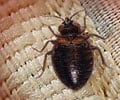Scientists at University College Dublin, Ireland have discovered that pseudomonas bacteria can convert the low-grade PET plastic used in drinks bottles into a more valuable and biodegradable
Scientists at University College Dublin, Ireland have discovered that pseudomonas bacteria can convert the low-grade PET plastic used in drinks bottles into a more valuable and biodegradable plastic called PHA.
The discovery could actually help save billions of plastic bottles from landfill.Already, PHA is used in medical applications, from artery-supporting tubes called stents to wound dressings. It can also be processed to have a range of physical properties.
But still PHA can't be used widely, because there is no way to make it in large quantities.
However, the new bacteria-driven process, upcycling, can overcome the problem, and can thus make recycling PET bottles more economically attractive.
Despite the production of billions of plastic bottles every year, only a few are recycled, as the recycling process just converts the low value PET bottles into more PET, said Kevin O'Connor at University College Dublin, Ireland.
"We wanted to see if we could turn the plastic into something of higher value in an environmentally friendly way," New Scientist quoted him, as saying.
Also, the researchers also knew that some bacteria can grow and thrive on TA, and that other bacteria produce a high-value plastic PHA when stressed.
"It was a long shot to be honest," said O'Connor.
After studying cultures from around the world known to grow on TA, the team could not find one that produced PHA. So they decided to look for undiscovered strains, in environments that naturally contain TA.
They found that soil bacteria from a PET bottle processing plant, which are likely to be exposed to small quantities of TA, yielded 32 colonies that could survive in the lab using TA as the sole energy source.
They screened each culture for PHA after 48 hours and found that 3 cultures, all similar to known strains of Pseudomonas, accumulated detectable quantities of the valuable plastic.
According to O'Connor, the next step is to improve the efficiency of the process.
"A quarter to a third of each cell is filled with plastic - we want to increase that to 50 to 60 percent," he said.
Source-ANI
SRM
 MEDINDIA
MEDINDIA



 Email
Email





